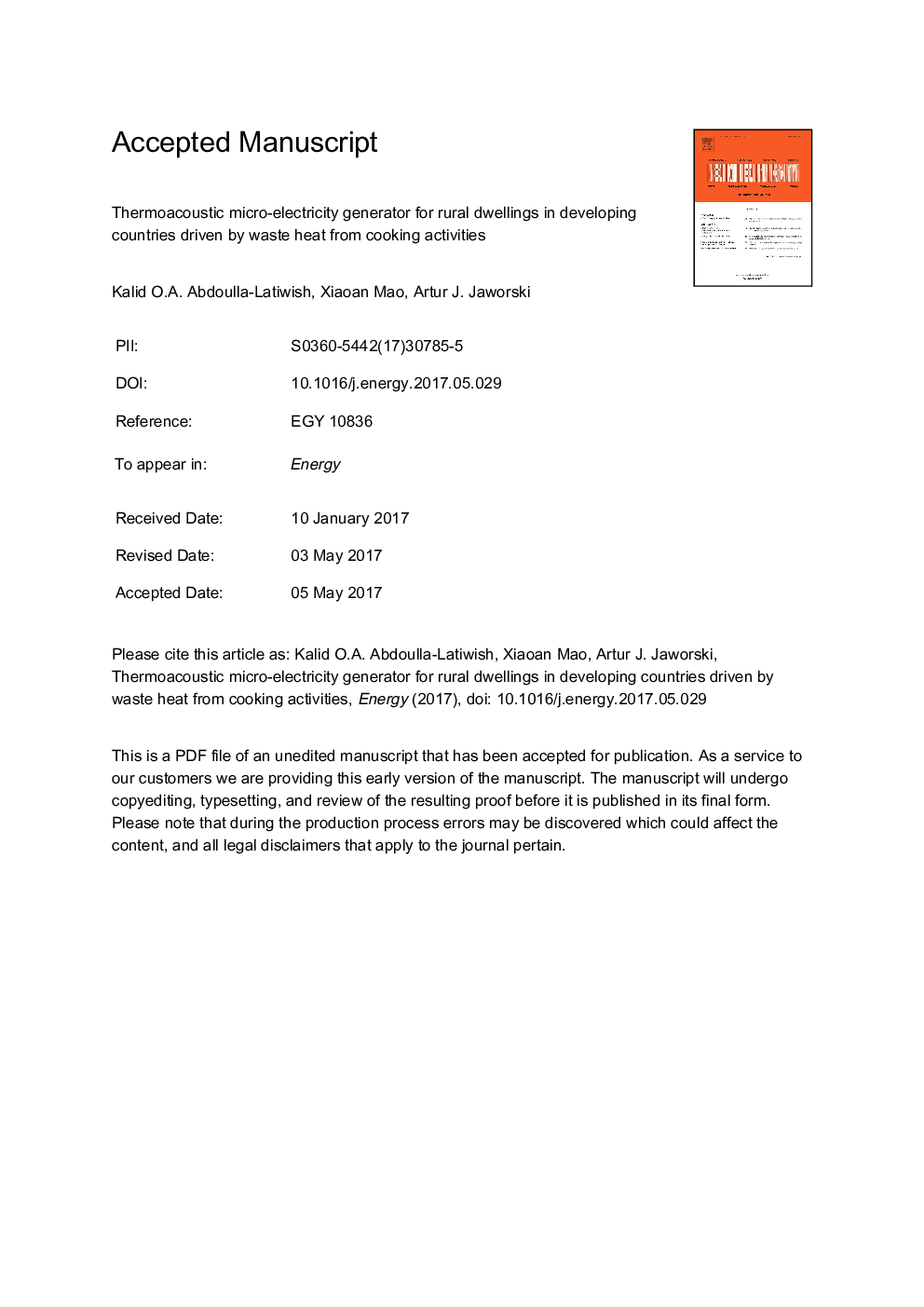| Article ID | Journal | Published Year | Pages | File Type |
|---|---|---|---|---|
| 5475901 | Energy | 2017 | 36 Pages |
Abstract
Thermoacoustic engines convert heat into acoustic power without moving parts. Coupling them with electrodynamic transducers - directly converting acoustic power into electricity - enables building simple electricity generators, where the only moving part is the piston of the linear alternator. Integration of such devices with biomass-driven cookstoves widely used in remote and rural areas of developing countries can lead to inexpensive electrical power systems, essentially powered by waste heat from daily cooking activities. In this paper the modelling, design, construction and testing of a laboratory demonstrator of such generator is outlined. A travelling-wave thermoacoustic engine with a looped-tube configuration is modelled using DeltaEC tool and constructed to convert heat input into acoustic power. Flue gas from a propane burner is used as a heat source for demonstration purposes. An audio loudspeaker is connected to a side branch and adopted as the electro-dynamic transducer for electricity production. Atmospheric air is employed as the working fluid to keep the cost of future systems low. The demonstrator produced just under 20Â W of electricity with thermal-to-acoustic and thermal-to-electric efficiencies of around 3.5% and 1.9%, respectively, which demonstrates the micro-power source concept. Experimental results and their numerical validation are outlined and analysed.
Related Topics
Physical Sciences and Engineering
Energy
Energy (General)
Authors
Kalid O.A. Abdoulla-Latiwish, Xiaoan Mao, Artur J. Jaworski,
